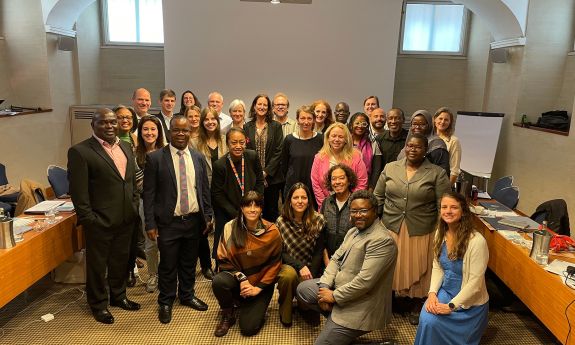The Big Impact of Small Fisheries Around the World
Duke scholars and students were among more than 800 experts who contributed to global study calling for policymakers to consider contributions of small fisheries

The “Illuminating Hidden Harvests” initiative builds on The Hidden Harvests: The Global Contribution of Capture Fisheries, a 2012 study by FAO, the World Bank, and WorldFish that marked a first attempt to synthesize data on small-scale fisheries. The new report assessed their environmental, economic, gender, nutrition and governance contributions.
Among the highlights of the new report:
- Small-scale fisheries produce 37 million tons of aquatic foods each year, roughly 40 percent of the global catch.
- In 2016, an estimated 492 million people were at least partially dependent on small-scale fisheries for their livelihoods. The 60 million with full- or part-time jobs in small-scale fisheries account for 90 percent of total fisheries employment worldwide.
- Approximately four of every 10 people engaged in small-scale fisheries through direct employment or subsistence fishing are women.
- Fish are rich in micronutrients that are essential for good health and development.
- Co-management between communities and governments is perceived to be implemented for 20 percent of the small-scale fisheries catch.
The report drew on an array of existing data sources from the national and international levels and includes case studies from 58 countries. An interdisciplinary group of more than 800 experts contributed, including a large contingent from Duke University’s Nicholas School of the Environment, Marine Lab and Nicholas Institute for Energy, Environment & Sustainability.
“More than 25 students, including undergraduates, masters and Ph.D.s, and post-doctoral associates; research scientists; and faculty played a central role in the design and development of this landmark study,” said Xavier Basurto, Bass Chair for Excellence in Research and Undergraduate Education and associate professor of sustainability science at the Nicholas School of the Environment. “This was truly a team effort that showcased the culture of collaboration and ability to work across disciplines we train students to be able to do at Duke.”
Illuminating Hidden Harvests is part of a broader partnership between FAO and Duke to build a scientific evidence base for policy makers to develop strategies and solutions to support small-scale fisheries. This is another example of the Duke strategic vision of building partnerships that address large, challenging issues around the world.
Formalized through a memorandum of understanding in 2020, the partnership capitalizes on the strengths of both organizations. FAO benefits from research methods developed at Duke. Meanwhile, Duke students are able to apply their knowledge to real-word research projects that have a direct global impact on food security.
“The partnership with FAO allows us to connect our faculty and the U.N. effectively to try to eradicate hunger and pursue this noble idea of ending poverty,” said Toddi Steelman, Stanback Dean of the Nicholas School of the Environment, during a virtual event announcing the partnership in October 2020. “It's a vote of confidence in the importance of multilateral institutions at this time.”